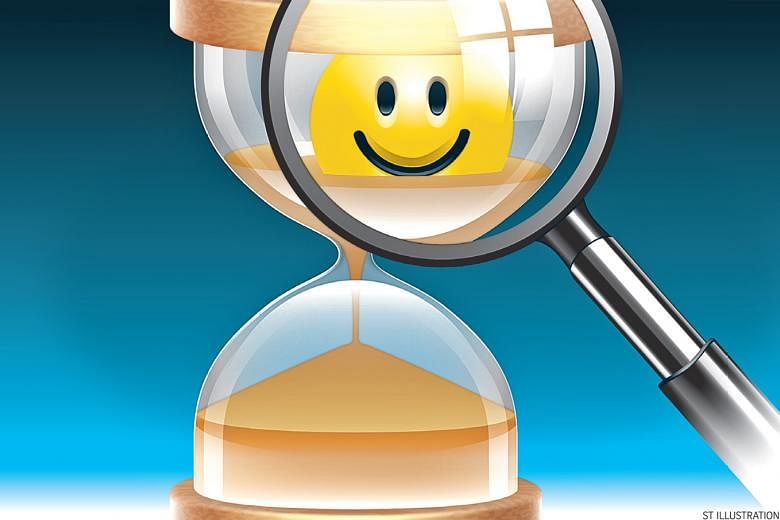What would you say is the main cause of human unhappiness?
Put aside for a moment the immediate and specific causes of suffering such as sickness, poverty and relationship problems.
And consider, instead, the general sense of unease and dissatisfaction that affects so many people in their everyday lives.
What is its source?
In his book The Wisdom Of Insecurity: A Message For An Age Of Anxiety, the late British philosopher and populariser of Eastern philosophy, Alan Watts, argues that the root of the problem is our anxious preoccupation with the future and the past.
To illustrate his point, he gives the example of a man who must undergo surgery in two weeks' time.

The man feels no immediate pain. He has a loving family and good friends. He has a well-paid and interesting job. He has a lovely home, and plenty to eat and drink.
And yet he cannot enjoy these things because his mind is preoccupied with the dread of what lies ahead.
"This is the typical human problem," writes Watts. "The object of dread may not be an operation in the immediate future. It may be the problem of next month's rent, of a threatened war or social disaster, of being able to save enough for old age, or of death at the last."
And just as worries about the future can cast a pall over the present, so, too, can the baggage of the past.
The memories of past slights, rejections, wrongdoings, failures and indiscretions can pollute the present with guilt or resentment.
For many people, these negative concerns become a source of chronic unhappiness.
Watts writes: "The power of memories and expectations is such that for most human beings, the past and the future are not as real but more real than the present.
"The present cannot be lived happily unless the past has been 'cleared up' and the future is bright with promise."
A recent experience vividly illustrated this idea to me.
A few weeks ago, I took a long-haul flight from Hong Kong to Manchester. It was a bumpy trip and I am something of a nervous flier. So, at times, I found the journey unpleasant.
And yet, during periods of severe turbulence, when the plane was bouncing and dropping, I discovered that if I attended strictly to the present experience, rather than imagining what might conceivably happen in the future, I found nothing to discomfort me.
The bounces and drops posed no real danger and were not physically unpleasant. I had a comfortable seat, in-flight entertainment, food and drink, and some much-needed time to kick back and relax.
As the journey progressed, I found that by deliberately focusing my attention on the present, I could significantly reduce my stress levels and enjoy the flight.
The incident was, in itself, of no great importance. But perhaps there was a lesson to be learnt from it.
Each day presents us with opportunities to grow, to learn, to connect with others and to have fun. Perhaps a meal with friends, a walk in the park, a game of tennis, or half-an-hour's relaxation with a cup of tea and a good book.
But if we allow ourselves to be preoccupied with worries about the future or regrets about the past, we can waste those opportunities.
Needless to say, we must sometimes prepare for the future and reflect on the past. But for the most part, it is perhaps wisest to focus on the present.
•Gary Hayden is a philosophy and science writer.

